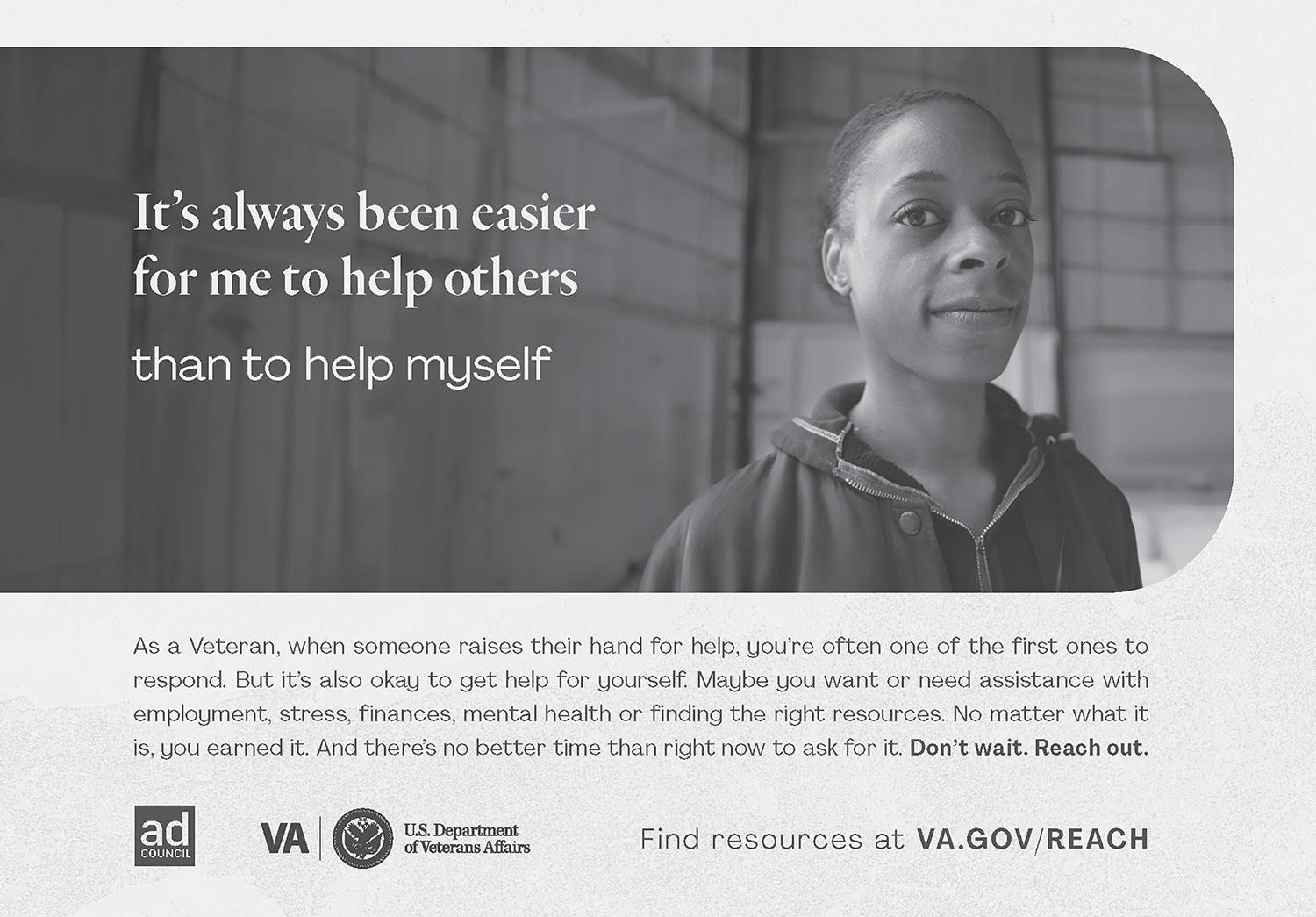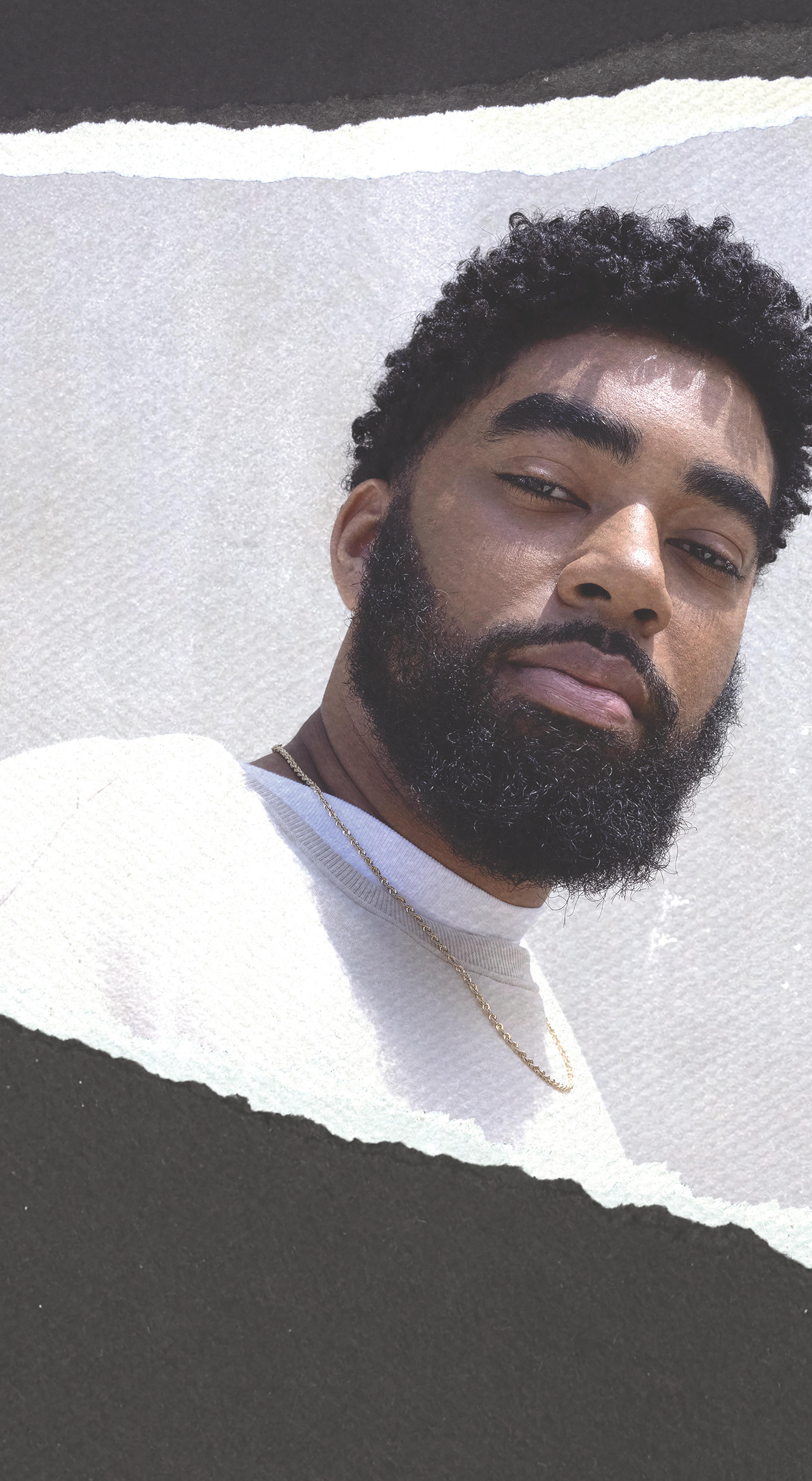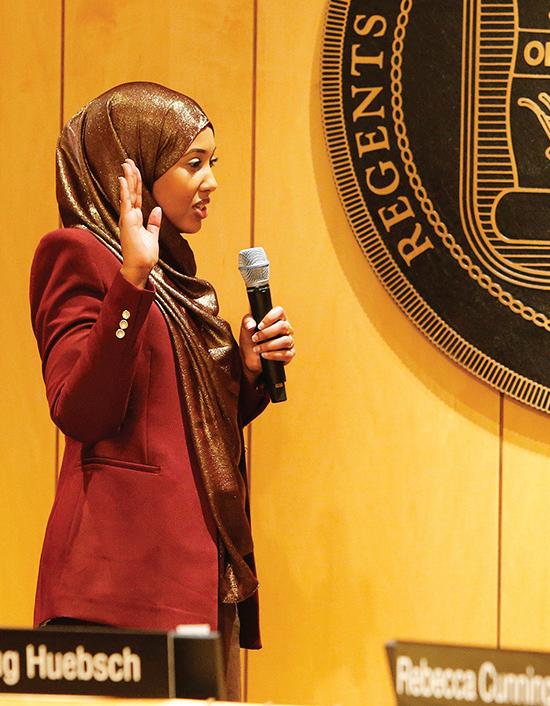

In their own words: Black workers reflect on federal service amid shutdown
By Brandon Tensley Capital B News
As the government shutdown nears a month and the furloughs continue, hundreds of federal employees are lining up to get food and other items at local pantries. If the work stoppage persists, more than 40 million Americans could be denied food assistance benefits.
The tumult facing furloughed employees illustrates just one of the many challenges that Black federal workers have experienced this year.
Long before the shutdown started on Oct. 1, the Trump administration began to signal its intentions to scale back the federal workforce. In February, it eliminated hundreds of thousands of positions, including many that were viewed as having a focus on diversity. The mass layoffs disproportionately impacted Black communities because while Black Americans make up 14% of the U.S. population, they make up approximately 18% of the federal workforce.
Then, those employees who weren’t dismissed and didn’t resign were confronted with one of the longest government shutdowns in U.S. history. Though offering back pay once the government reopens is standard practice, the administration has threatened to deny it to the employees who have been furloughed. (In 2019, President Donald Trump signed a measure guaranteeing this compensation.)
Some two dozen states have
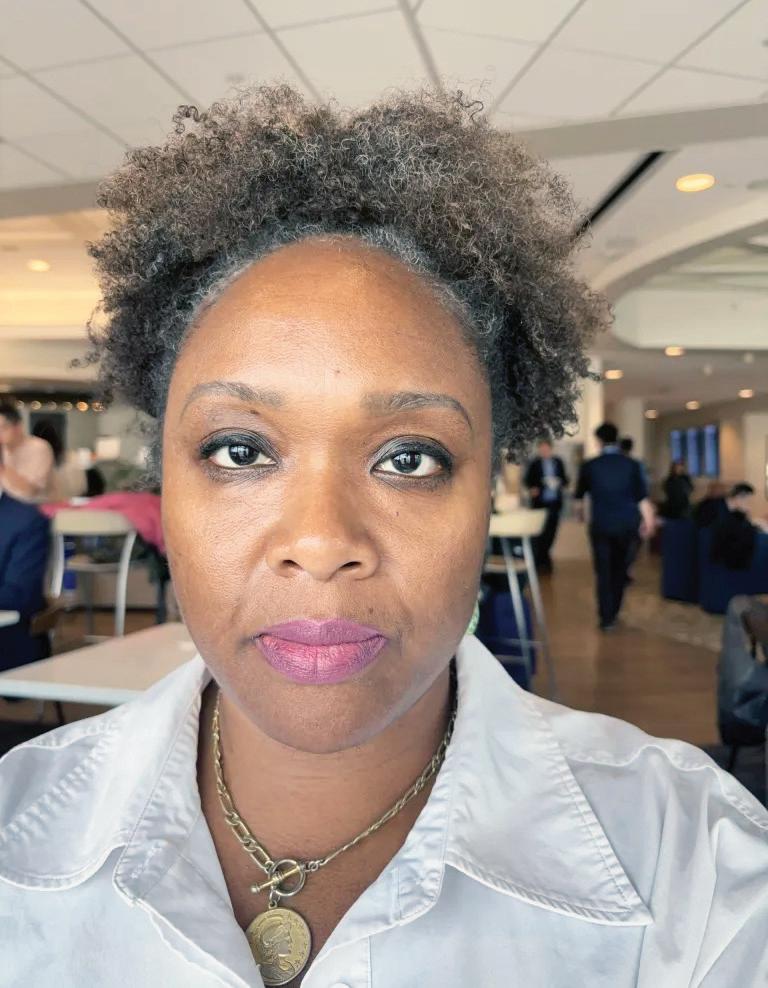
sued to prevent the White House from suspending food stamp benefits during the shutdown.
Black workers are hit especially hard during a shutdown, explained Michael Neal, an economist at the Urban Institute. Neal previously told Capital B that, generally, Black employees don’t have “as much savings, on average, to replace their lost income.” White households have $8,100 in liquid assets, while Black households have $1,500, according to 2019 data.
The uncertainty within the federal government may also be contributing to the growing Black unemployment rate, according to a New York Times analysis. Over the past several months, the Black unemployment rate has climbed from 6% to 7%, while the white unemployment rate has dipped slightly to 3.7%.
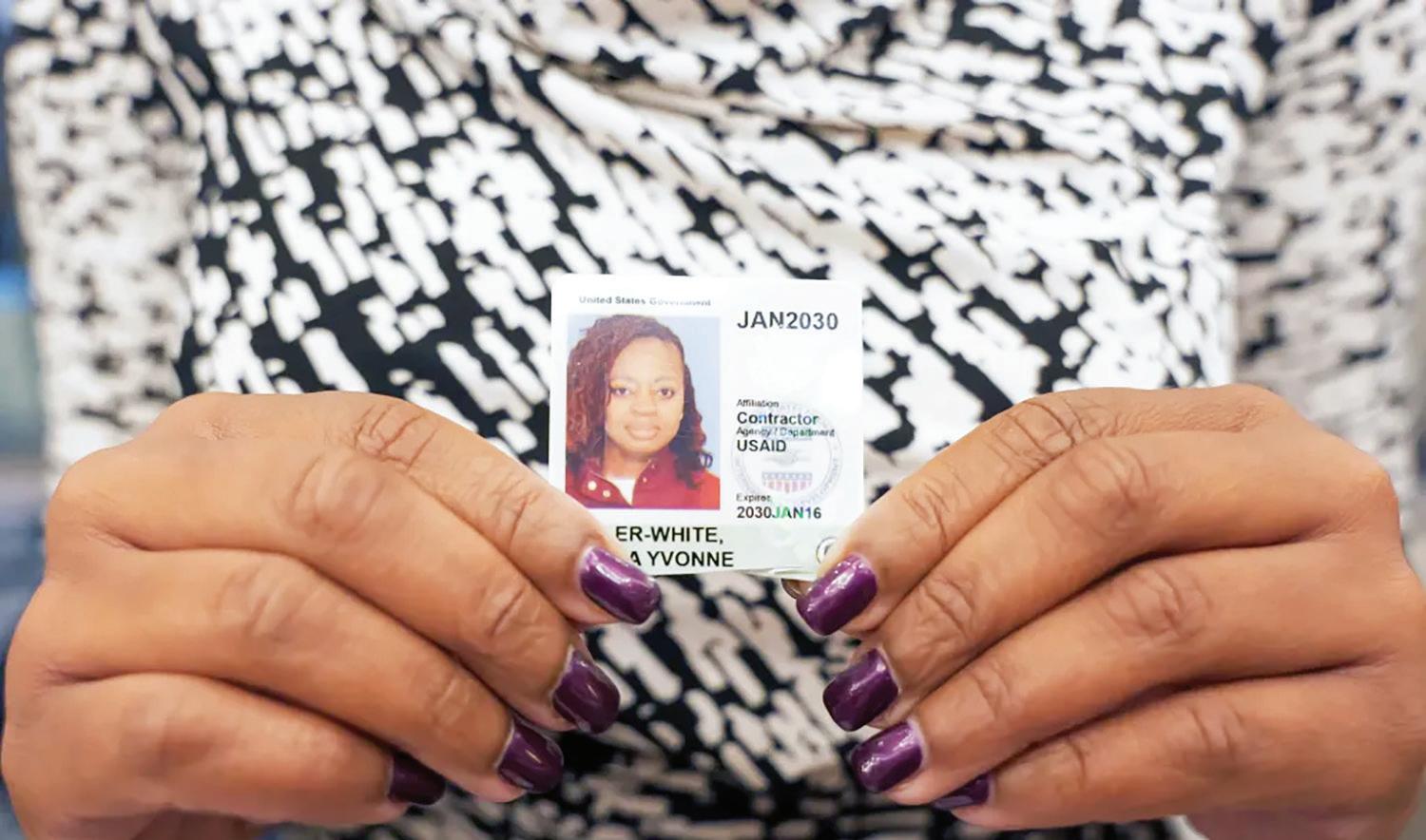
“I think the speed at which things have changed, in such a dramatic fashion, is out of the ordinary,” Valerie Wilson, the director of the program on race, ethnicity, and the economy at the Economic Policy Institute, told the news organization. “There’s been such a rapid shift in policy, rather than something cyclical or structural about the economy.”
To capture the widespread impacts of the administration’s overhaul of the government, Capital B interviewed several Black employees who, in a variety of ways, are continuing to navigate the loss of their positions — and threats to their livelihoods.
“Federal work came with a deep sense of pride”
Tony Brown, 36, had been workinas a data scientist at the Center for Substance Abuse Treatment — an office under the U.S. Department of Health and Human Services — for just a couple of months. Then, he learned in February that his role was being cut.
Brown was devastated. The news was delivered via a letter that he said felt impersonal. The note claimed that his work wasn’t up to snuff, though he hadn’t been at the agency long enough to have a performance report, he said.
It was Brown’s self-esteem that took the biggest hit when he was laid off. For more than a decade, he aspired to work for the federal government: Brown was previously employed at the Maryland Department of Health and the South Carolina Department of Public Health.
“Federal work came with a deep sense of pride,” Brown told Capital B. “To contribute to the national wellbeing, I was excited about that.”
He found work in the private sector within a couple of months, and said that he can’t imagine going back to work for the federal government — at least not during the current administration.
Brown said that his former work environment was already starting to feel toxic before he left. Colleagues had been told to remove pronouns from their email signatures, and workers couldn’t really discuss issues pertaining to transgender Americans, he said, noting that the intensity of this environment appears to have ramped up.
“It just doesn’t seem good,” Brown said. “After I left, I heard from people still there that everything is tense now. There’s so much pressure. The supervisors and the leaders and the managers and the directors cut so much of the staff, but then still want results and work done. That falls on the remaining people.”
He added: “I have the privilege of being able to maintain my integrity. But some people don’t have that luxury and must take what they can get.”
“I relocated my life for this role”
For more than a year, 37-yearold Regina Fuller-White submitted application after application, hoping to land a role at the United States Agency for International Development.
In 2024, she finally secured a contract-based position as a monitoring, evaluation, and learning adviser with USAID’s gender equality and women’s empowerment hub. She started her job in October of that year, but by the end of February 2025, the rug had been pulled from under her: The administration dismantled the agency. She was left without work.
Fuller-White said that the cuts were particularly destabilizing to her because of how much time and money she had sacrificed for a job that made her feel as if she had just “won the lottery,” she told Capital B in October. She had hired a career coach to help her to navigate the byzantine application process. She and her husband also moved from Wisconsin to Maryland so that she could begin her work at USAID.
“I relocated my life for this role,
and the agency doesn’t even exist anymore,” she told Capital B in April. “It’s been gut-wrenching. This is the career I’ve spent my entire life preparing for. If I don’t do international work, what am I supposed to do?”
Fuller-White said that the Trump administration’s messaging hasn’t made the upheaval of the past several months any better.
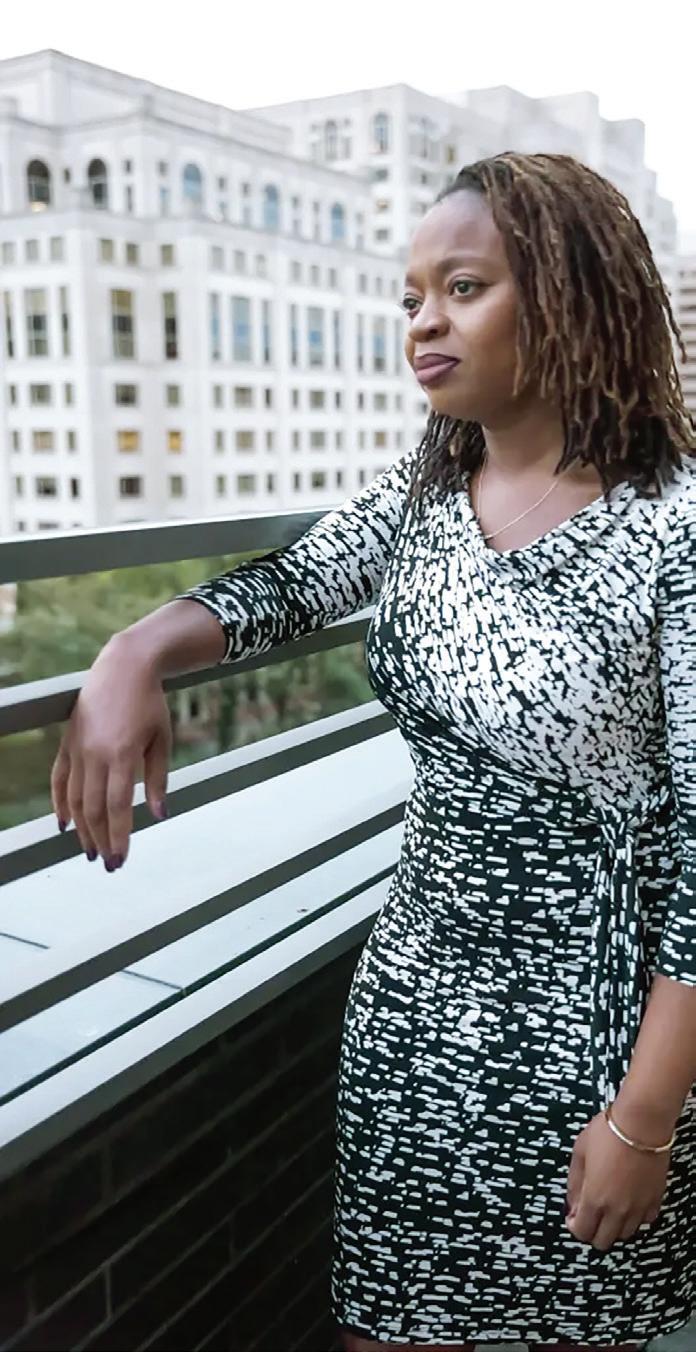
Trump and his allies have frequently characterized federal employees as lazy and have cited an untrue statistic that only 6% of them work full time in their offices.
“The rhetoric hurts. I remember
Guest Commentary by Nathaniel M. Fields
We need to talk about domestic violence
October was Domestic Violence Awareness Month, a time to honor survivors, remember those we have lost, and confront one of the most pervasive and deadly forms of violence in our society. Yet year after year, this month passes with too little outrage and too little action.
As a Black man and the CEO of the Urban Resource Institute, the largest provider of domestic violence shelter services in the United States, I feel a deep responsibility to speak plainly. Domestic violence is a shadow pandemic in America.
Every minute, 24 people experience physical, emotional, or psychological harm from an intimate partner. One in four women and one in seven men will endure this abuse in their lifetime. By the end of the day, three women would have been murdered by an intimate partner. For Black and brown women, the impact is far more devastating-both in scale and in severity.
Across the country, systemic inequities make safety, healing, and justice painfully out of reach. Black women represent only 14 percent of the U.S. population but account for 31 percent of intimate partner homic ides. They are three and a half times more likely to be killed by a partner than white women and five times more likely to die by firearm during pregnancy. Between 201O and 2021, the number of Black women killed by guns tripled, with domestic violence driving much of that increase.
These are not just statistics. They are lives lost, families shattered, and communities left grieving in silence. And still, domestic violence remains one of the most underreported crimes in America. Too many survivors, especially women of color, stay silent out of fear, discrimination, or mistrust of systems that have too often failed to protect them.
For Black and brown women, those fears are magnified by economic abuse, the hidden weapon of control. Nearly every survivor experiences some form of financial coercion. Partners withhold money, destroy credit, sabotage jobs, and seize vital documents. When someone cannot open a bank account, work, or pay rent without permission, leaving is not a choice-it becomes a matter of survival.
We must face a hard truth: we cannot end domestic violence without addressing economic abuse and homelessness.
While the Violence Against Women Act in 1995 marked a turning point, our systems still fall short. Survivors need more than shelter. They need economic independence, accountability for those who have caused harm, and prevention that begins early.
At the Urban Resource Institute, we meet survivors where they are. We provide safe, trauma-informed shelters for individuals, families, and even their pets because safety should never come with conditions. We equip survivors with job readiness, legal support, and financial tools to rebuild their lives with stability and dignity. We reach young people through our Relationship Abuse Prevention Program, teaching what healthy relationships look like long before abuse begins. And through our Abusive Partner Intervention Program, we work directly with those who have caused harm to build accountability and change.
These programs work. They are changing lives every day. Yet too often, funding for prevention and intervention is seen as optional rather than essential. If we are serious about ending domestic violence, we must invest in solutions that address the full continuum-from emergency shelter to long-term stability, from survivor safety to offender ac countability.
The truth is, we all know someone who is experiencing domestic violence. By the time you finish reading this, three women will have been murdered by an intimate partner. But here is the hope: We have the knowledge, the tools, and the programs to stop it.
What we need now is the will.
We must raise awareness, remove stigma, and make resources visible and accessible. Policymakers must prioritize prevention and invest in grassroots organizations that meet survivors where they are. Communities must speak up, believe survivors, and hold abusers accountable.
This generation has the power to end the shadow pandemic. We can make safety, healing, and justice a reality for every survivor-if we act now.
Let’s get to work.
Nathaniel M. Fields is the CEO of Urban Resource Institute, the largest provider of domestic violence shelter services in the United States.
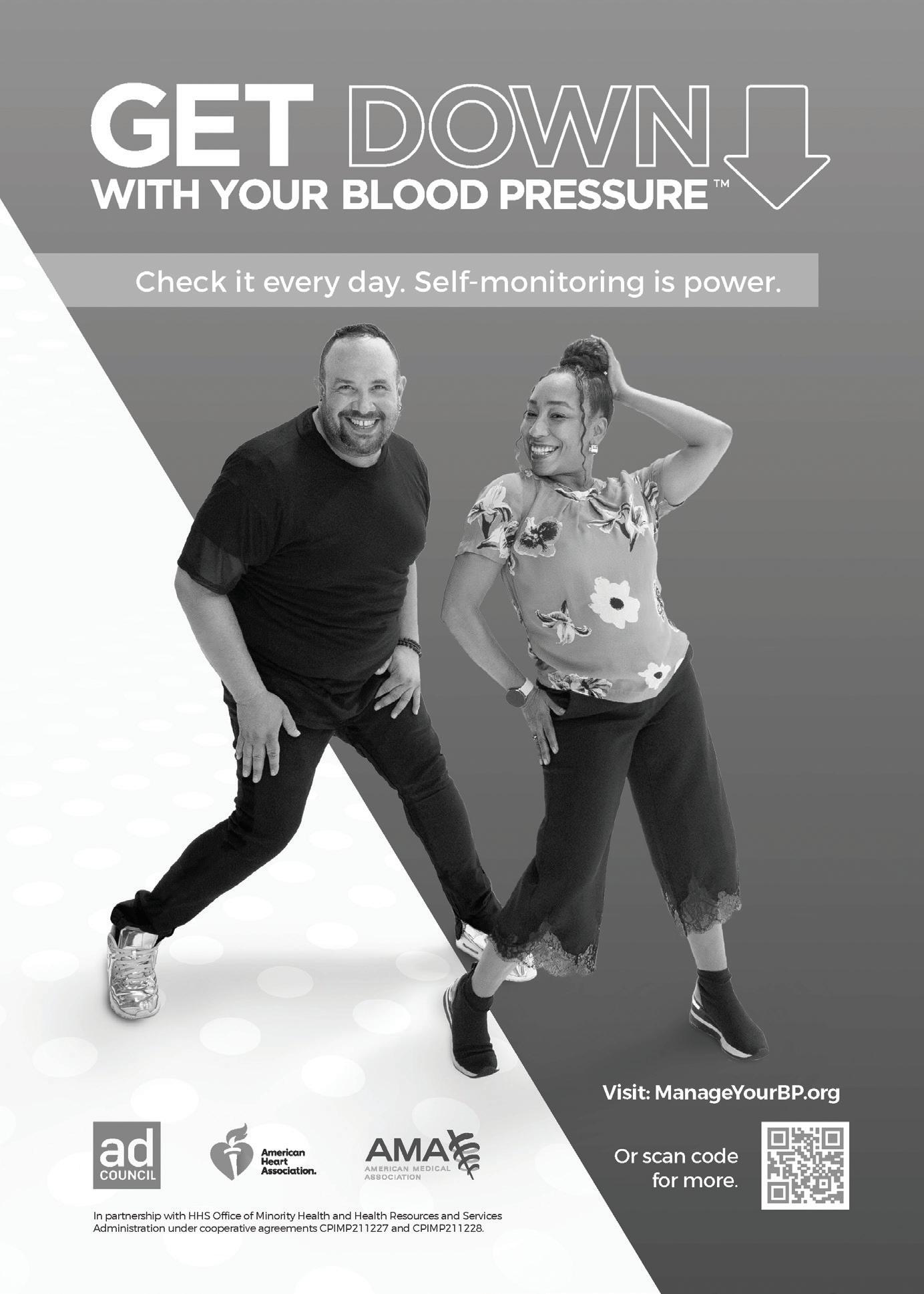
An ancient tradition is helping girls in Zimbabwe fight child marriages
By Farai Mutsaka Associated Press
SHAMVA, Zimbabwe (AP) — Inside a white tent with a wooden fireplace in the middle, about two dozen African girls slipped off their shoes, sat on mattresses and prepared to pour their hearts out.
They held hands and their chants of “it’s so nice to be here” echoed through the tent before they set about discussing sexuality, child marriage, teen pregnancy, gender bias, education, economic empowerment and the law. Nothing was off limits.
The girls’ hangout in rural northeastern Zimbabwe is a revival of Nhanga, the local term for “girls’ bedroom,” an ancient traditional space once used to prepare adolescent girls for marriage. Across rural Zimbabwe, girls are now reinventing the centuriesold practice as a peer-led movement to resist child marriage, which is rife in the southern African nation.
“This is a safe space, every girl feels free,” said 18-year-old Anita Razo, who joined at 14 and now mentors younger girls.
Ancient tradition, new purpose
In traditional homesteads, a round thatched hut served as Nhanga, a female-only room where girls were taught obedience, how to please
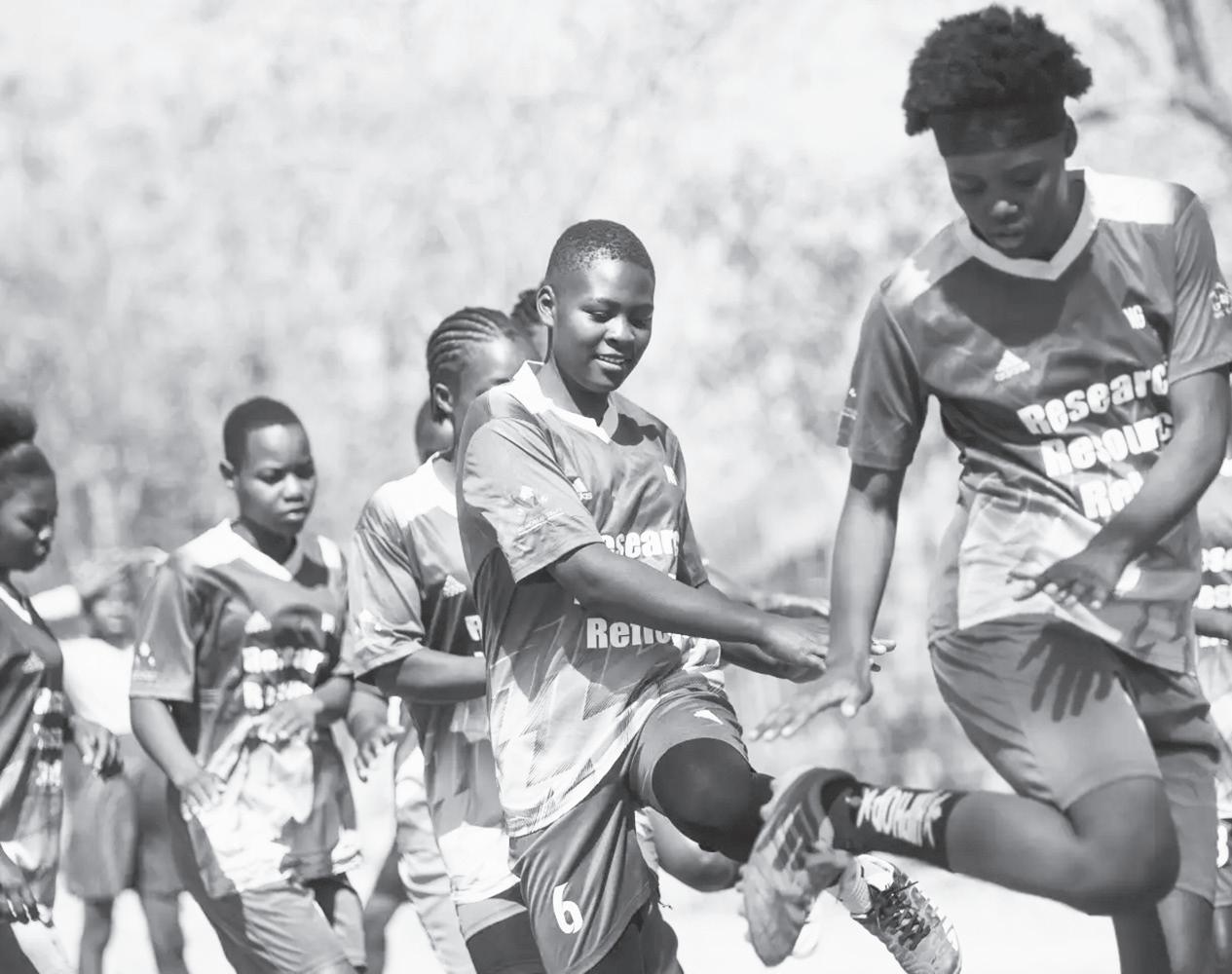
by age group, from girls as young as five to women over 35, ensuring an age-appropriate curriculum and mentorship across generations. Elders, including senior government officials, are sometimes invited.
A wider problem
The reinvention comes against worrying statistics. One in three girls in Zimbabwe marries before 18, according to the United Nations
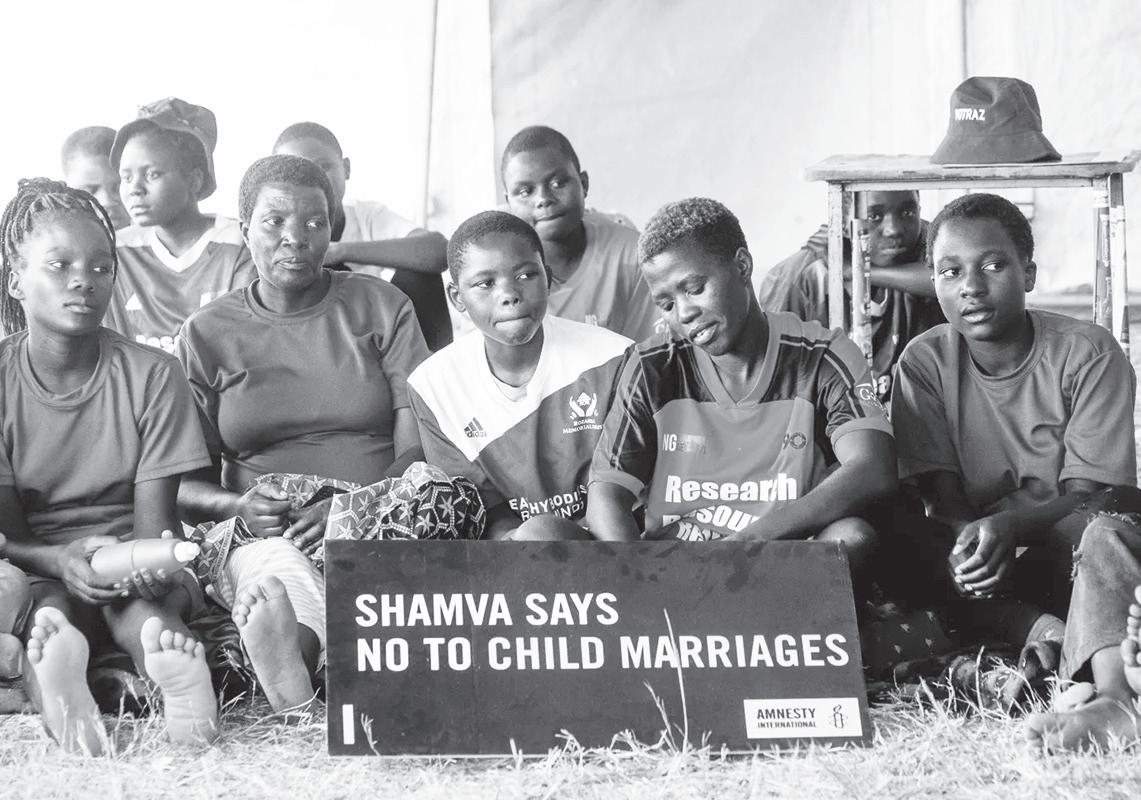
offered a path back. Now 26 and a final-year law student, she was forced into an abusive marriage at 17 to a man nearly a decade older.
“All I wanted was to play and think of my future. Suddenly I had to be a mother and wife,” she said at a camp that blended tent sessions with a “girls and goals” soccer tournament.
“I didn’t even know what to do. I would be dead asleep, oblivious that
across Zimbabwe have adopted the model, which has spread to Zambia and Sierra Leone and reached African Union and United Nations forums.
Winning over elders
Because child marriage is often rooted in culture and religion, girls sought the backing of chiefs and village heads — custodians of local customs.
Xmas Savanhu, a local village headman, said leaders now enforce rules against early marriage. Offenders must pay a cow as a fine held in trust by the chief for the girl’s education. “This ensures she can return to school without financial worries,” he said, noting that culprits are also reported to police. Chiefs also partner with NGOs to help young mothers resume their studies.
Despite progress, poverty and entrenched attitudes persist, said Enet Tini, a teacher and girls mentor whose school adopted the model.
She welcomed a government policy allowing girls to return to school after giving birth, but noted parents are often reluctant. “The gap that we have lies with the adults. They view pregnancy or child marriage as indiscipline so they think the girls should be punished,” she said, highlighting the importance of girls-led initiatives to change attitudes among themselves and the community.
A global problem, local solutions Nyaradzai Gumbonzvanda, deputy executive director at U.N. Women and founder of the Rozaria Memorial Trust,
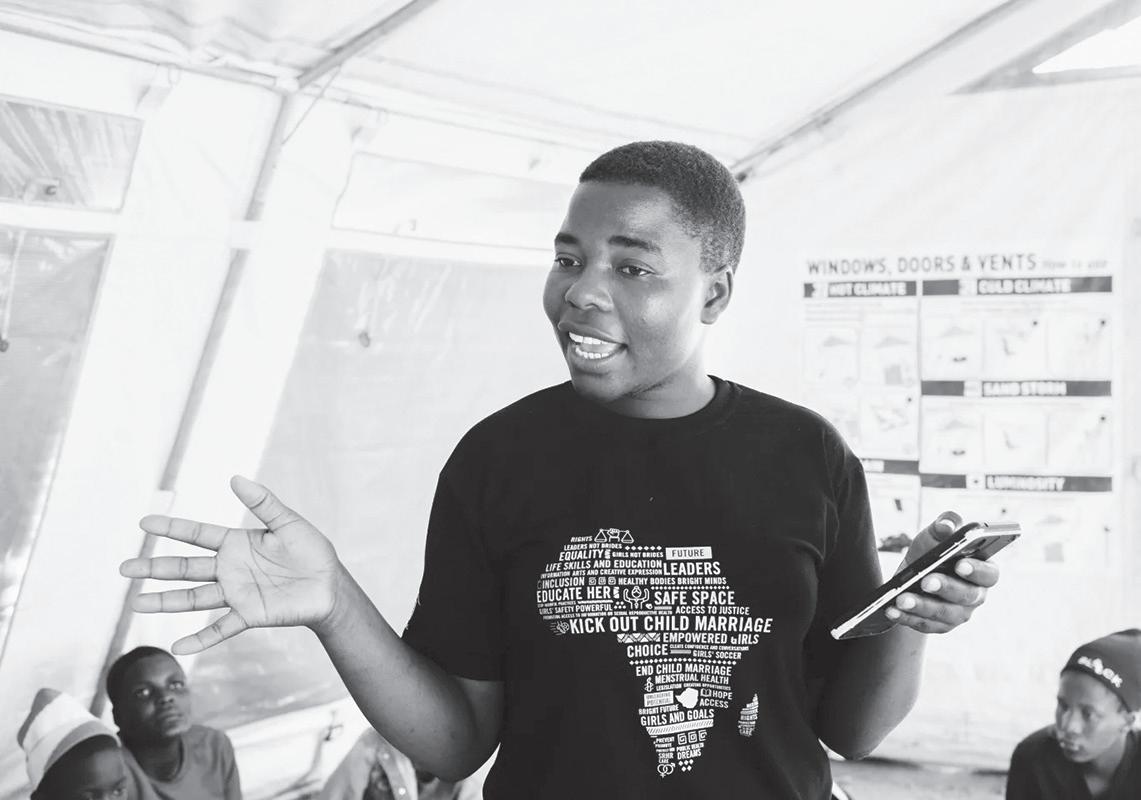
husbands and moral education. It reinforced patriarchal expectations.
Today, the practice is being flipped. “The new Nhanga is a cultural innovation dealing with modern problems,” and where girls candidly tackle subjects still sensitive in many conservative homes, said Nokutenda Magama, a programs officer with Rozaria Memorial Trust, a nonprofit that works to empower rural girls and women and is behind the Nhanga revival.
Sessions include practical skills like poultry raising, farming and soap making.
The trust organizes gatherings
Children’s Fund, calling it “a national emergency demanding urgent action.” It’s a similar situation across East and southern Africa. Child marriage rates soar to above 40% in central and West Africa, with Niger, at 76%, the highest globally, according to UNICEF.
Zimbabwe and many other African countries have outlawed child marriage, even overturning laws prohibiting abortion for girls under 18, but poverty, lethargic enforcement and cultural and religious customs keep it alive.
Child bride to community role model
For Samantha Chidodo, the revival
I needed to breastfeed.” A woman next door would take the crying baby, feed him and return him to the sleeping teen mother, she recalled.
After two years, she walked away, enduring stigma as neighbors warned others not to associate with her. With support from Rozaria Memorial Trust, she returned to school and became one of the modern Nhanga pioneers.
“Initially we were only about 20 girls. Almost 90% of us did well, some went to college, others started projects. The community began to see our power, and encouraged their children to join,” she said. “Nhanga is now seen as cool.”
Today, more than 200 girls in her village participate. Many schools
called child marriage “essentially rape and sexual exploitation” and a worldwide problem, but “much higher in Africa,” where laws alone cannot end it.
“Laws are important … but it is critically essential to reach to the girls themselves, to do the shift in the social norms in our communities,” said Gumbonzvanda, who started Rozaria Memorial Trust in 2007 in honor of her late mother, who was married at 13.
Her message that solutions must involve girls themselves alongside policymakers and traditional leaders resonates with Razo, the young mentor.
“If we can pressure each other into behaving badly, then we can also influence each other to act positively,” Razo said.
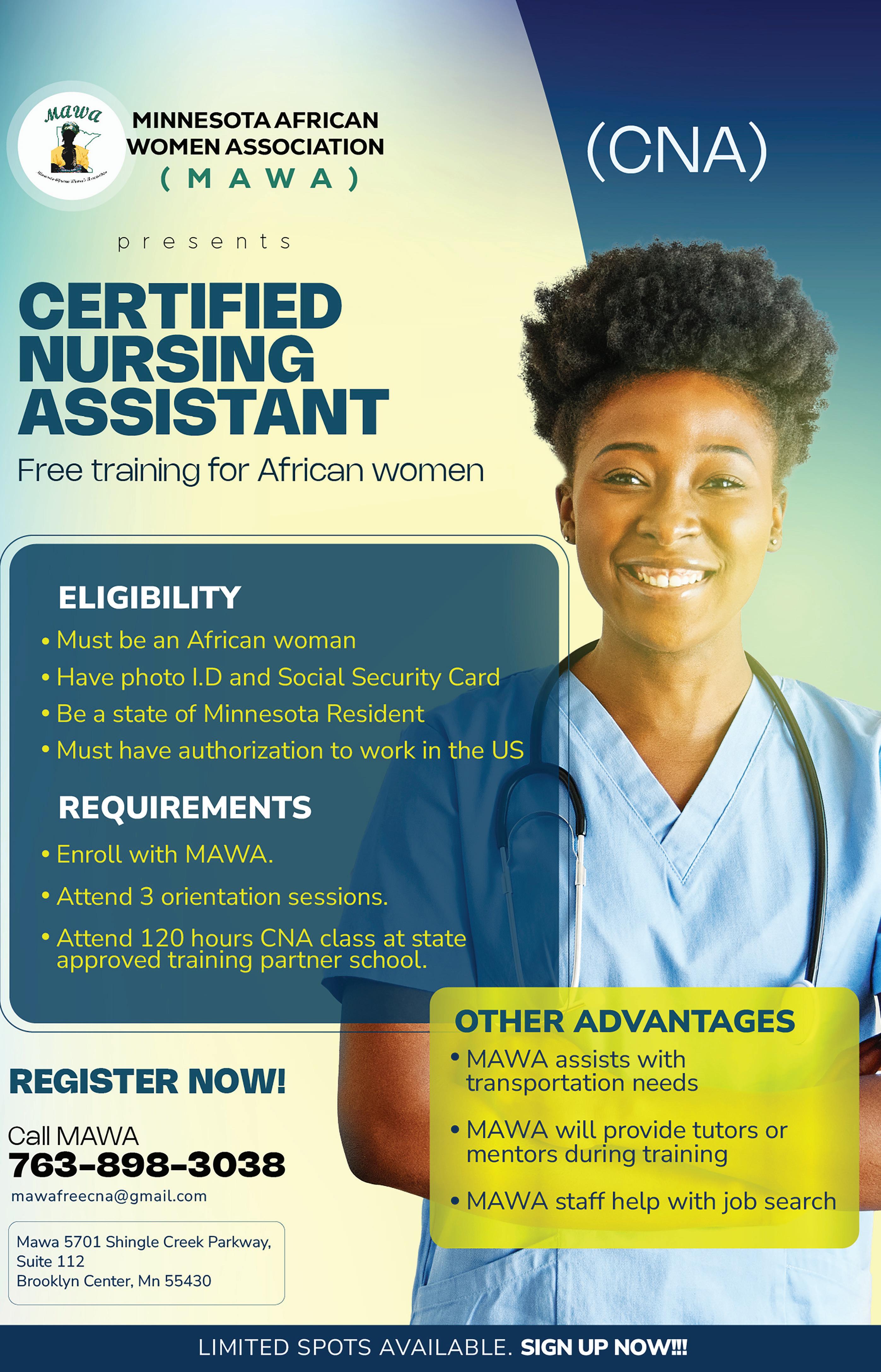
my workload and my team’s workload. I’d never done so much work in my life,” Fuller-White said. “We had the internships. We had the degrees. We had all the things that Black people, especially, are told to have to get these roles.”
“I’m hearing a lot of distress from my Black members”
Sheria Smith’s job as a civil rights attorney at the U.S. Department of
Even in the face of the layoffs, Smith continued to advocate for affected workers. She was the president of the American Federation of Government Employees Local 252, a union representing employees at the Education Department, until October. She told Capital B in April that Black members, in particular, were drowning in the chaos of the cuts.
“I’m hearing a lot of distress from my Black members,” Smith said. “They’re asking: ‘Well, if the federal government
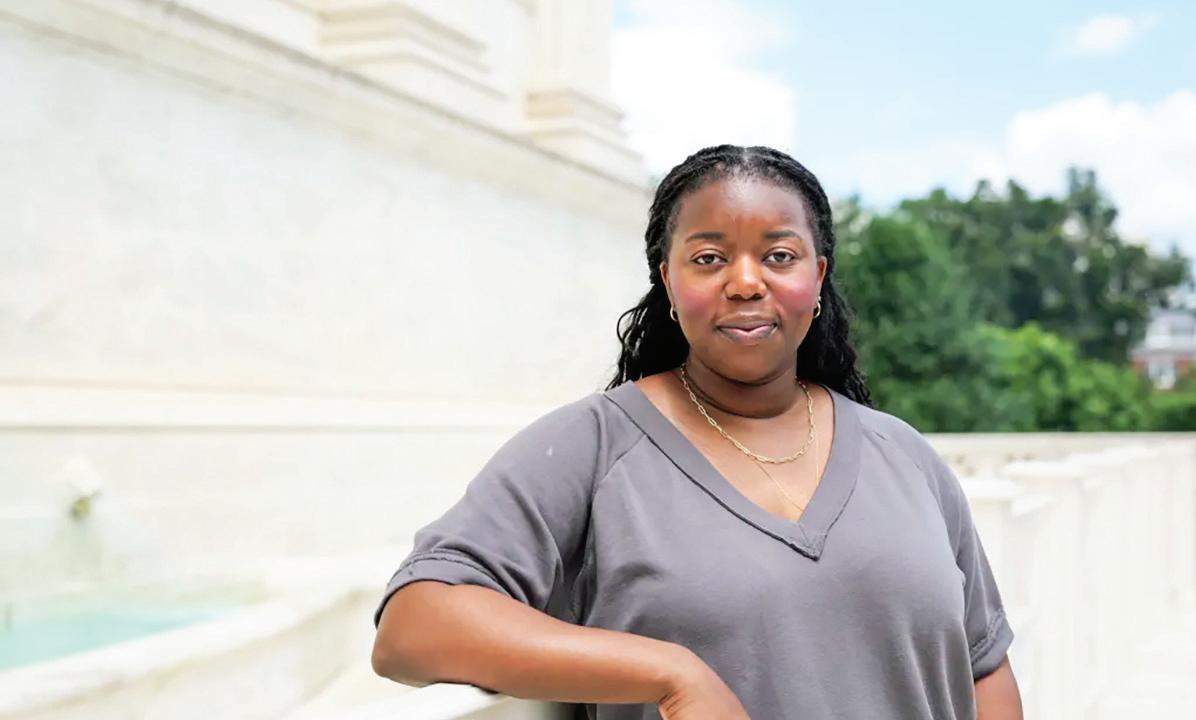
Education was the perfect marriage of two of her interests: teaching, and the law. A former fifth grade educator who grew up in a lowincome family in Gary, Indiana, 42-year-old Smith was passionate about using her position to protect the fundamental rights of students.
But in March, she learned that she was one of the more than 1,300 Education Department employees whose roles had been eliminated.
can do this — make arbitrary decisions about leave and termination — what hope do we have in the private sector?’”
While she’s no longer at the Education Department, Smith’s concern for those who rely on the agency’s services, especially Black students, continues: The layoffs are having an impact not just on the fired workers, but also on the students who benefited from the jobs those workers used to do.
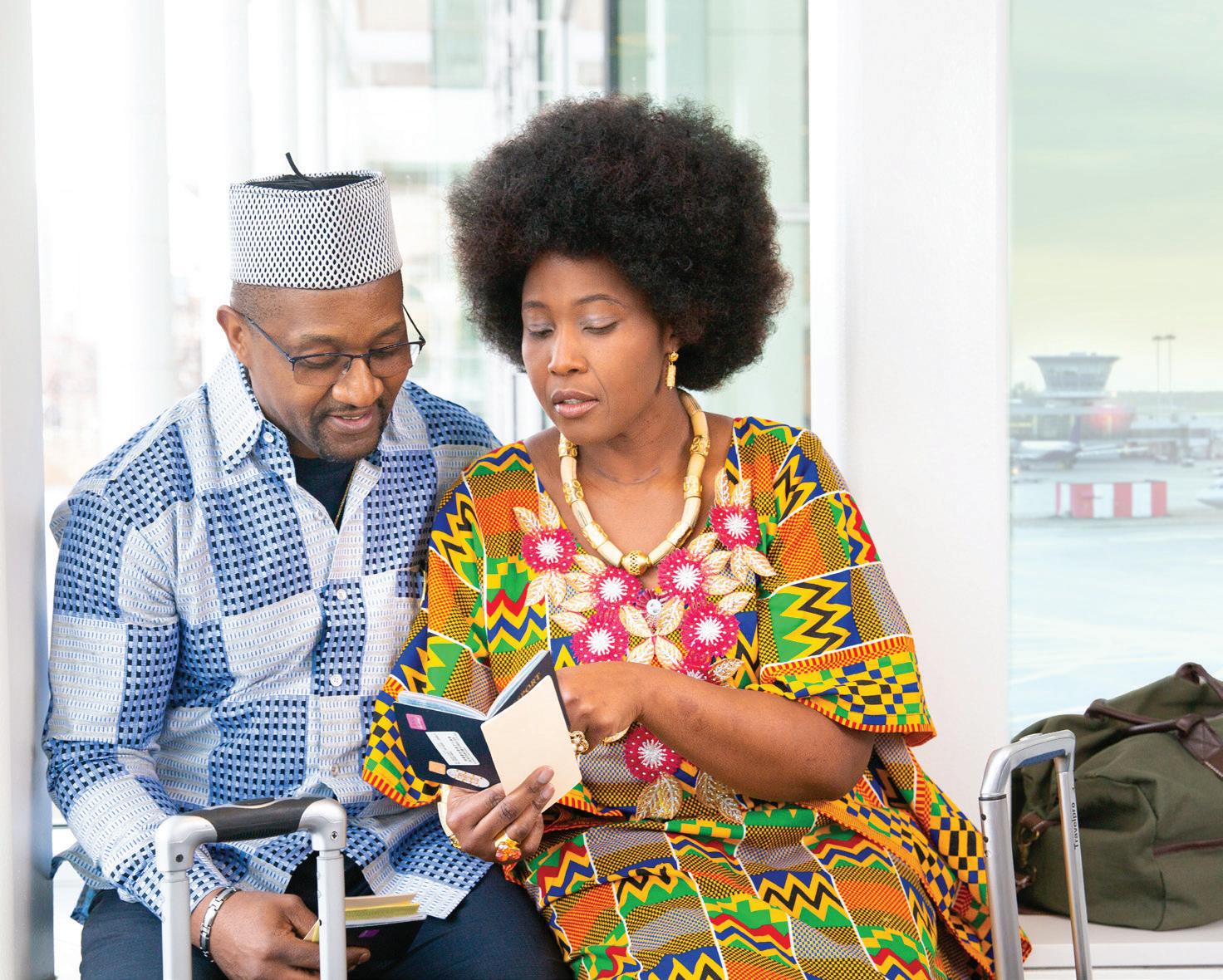
Administration officials want to shutter the Education Department. As a part of that effort, they have closed more than half of the agency’s Office for Civil Rights locations, where employees hear claims from students who argue that their rights are being violated.
Smith had been assigned to the Dallas office, which served Louisiana, Mississippi, and Texas and was handling cases that frequently involved potential abuse by school officers.
“We were very busy because those are states that have often been hesitant to follow Brown v. Board of Education,” Smith told Capital B in July. “We’re hearing from people in the remaining offices that their caseloads have exploded. They’re saying that the workload is impossible — they’re going to do their best, but it simply isn’t humanly possible, and cases are getting dismissed.”
“Why would you create mass unemployment?”
After her roller coaster of a journey with the federal government, Cornelia Poku, 34, was “sad and anxious and angry” for months.
She had worked at AmeriCorps, an agency focusing on community service, until February, when she was informed that she was one of the many probationary employees who was being cut.
But her layoff saga wasn’t linear: Her position was reinstated weeks later, but then she decided to participate in the deferred resignation program after she learned that more downsizing was imminent.
One way Poku said that she coped
with the unpredictability of her professional life was by leaning into her passion for content creation. Under the TikTok handle @blackgirlsexploredc, she produces videos that typically highlight Black-owned establishments in the D.C. area, from restaurants to historical sites.
“Content creation helps to distract me,” she told Capital B in April.
Poku said that the frustration she felt was immense. She didn’t see the logic of the layoffs. She worked as
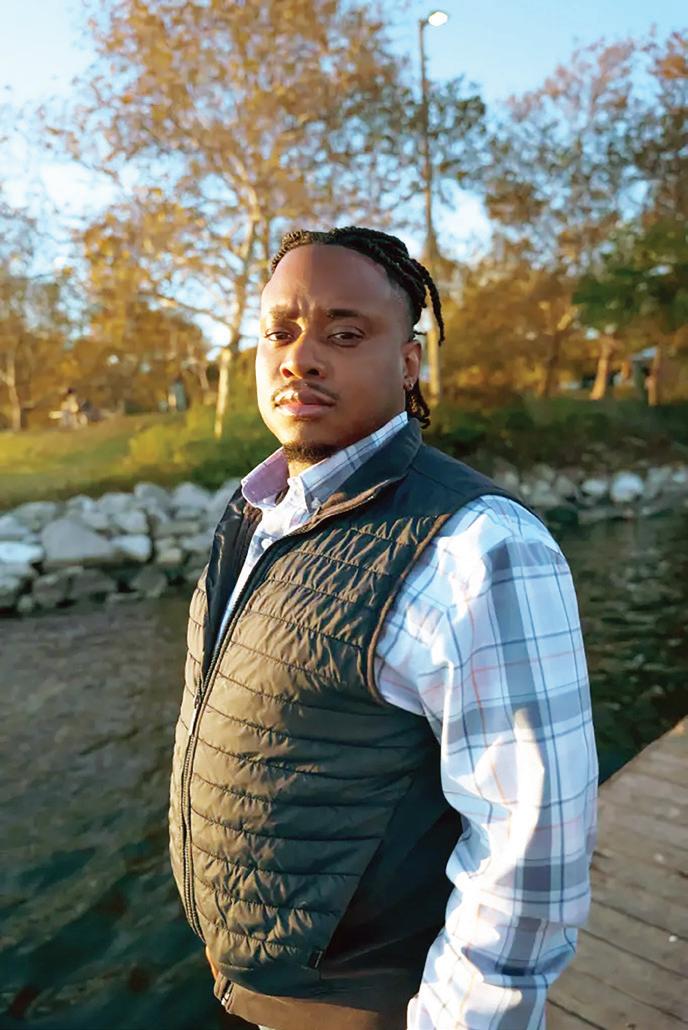
a marketing and communications specialist at AmeriCorps Seniors, which organizes volunteer opportunities for people 55 years old and older.
“Why would you create mass unemployment?” she asked. “Why would you dismantle a program that helps people give back to their communities?”

Kowsar Mohamed begins University of Minnesota Board of Regents term
By Cynthia Simba Mshale Staff Reporter
Kowsar Mohamed, a PhD student from the Twin Cities, has officially begun her term as the student-atlarge representative on the University of Minnesota’s Board of Regents, becoming the first Somali American woman to hold the position.
Mohamed was born in Minneapolis to Somali immigrants and raised in the Cedar-Riverside neighborhood, a bustling immigrant community known for its cultural vibrancy. In a recent interview with Mshale, Mohamed said she grew up seeing firsthand how public policy affects families like her own – an experience that shaped her commitment to civic engagement and community advocacy.
“I started this work as a young person advocating for my community,” Mohamed said. “That commitment to public service has guided me ever since.”
Mohamed was one of four new members appointed in August by Gov. Tim Walz to the University of Minnesota’s governing body.
“The University of Minnesota Board of Regents is gaining four accomplished, knowledgeable, and dedicated leaders,” Walz said when he announced the appointments. “They will bring a wide range of experiences and perspectives, united by a deep commitment to the University’s mission.”
Mohamed was officially sworn in by

Minnesota Chief Justice Natalie Hudson during the regent’s meeting held on Oct. 10. Her swearing-in marked the start of a new chapter in her longstanding commitment to public service and community representation.
One easy $0 premium plan
“Welcome officially regents Bergstrom, Heins, Lugar, and Mohamed,” Doug Huebsch, chair of the Board of Regents, said.
HealthPartners ® Minnesota Senior Health Options (MSHO) (HMO SNP) bundles Medicare, Medical Assistance and prescription drug coverage into a simple $0 premium plan. It saves you money. And it comes with valuable perks and support.
Plan highlights
• A dedicated care coordinator helps you navigate your health
• Rides to appointments
• Extras like tablets with well-being tools and lifelike support pets*
• Up to $450 in rewards for health screenings
HealthPartners is a health plan that contracts with both Medicare and the Minnesota Medical Assistance (Medicaid) program to provide benefits of both programs to enrollees. Enrollment in HealthPartners depends on contract renewal.
*The benefits mentioned are a part of special supplemental benefits for members with certain chronic conditions such as: heart failure, dementia, diabetes, cancer, or a disabling mental health condition. Not all members will qualify, and all applicable eligibility requirements must be met. For details and a complete list of eligible conditions, please contact us.
Discrimination is against the law. HealthPartners does not discriminate because of race, color, national origin, creed, religion, sexual orientation, public assistance status, marital status, age, disability or sex. H2422_004969_M Accepted 8/30/25 25-3491751-3609008 (9/25) © 2025 HealthPartners
Cont’d on Pg. 8
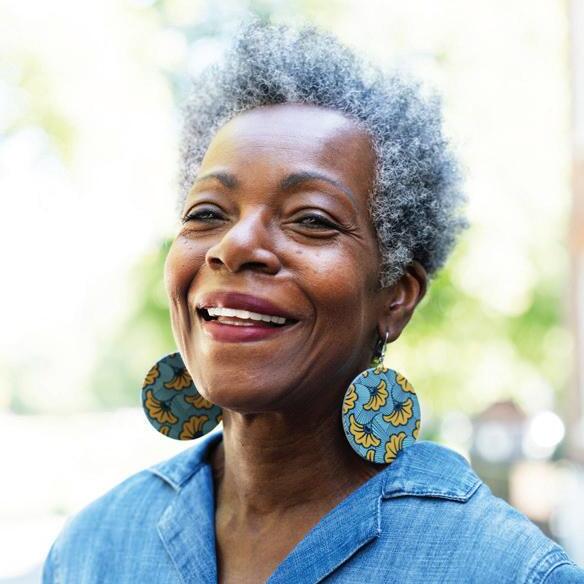
Easy, guided enrollment Call 855-394-8845 (TTY: 711) to find out if you’re eligible.
Oct. 1 to March 31: 8 a.m. to 8 p.m. CT, seven days a week April 1 to Sept. 30: 8 a.m. to 8 p.m. CT, Monday through Friday

or
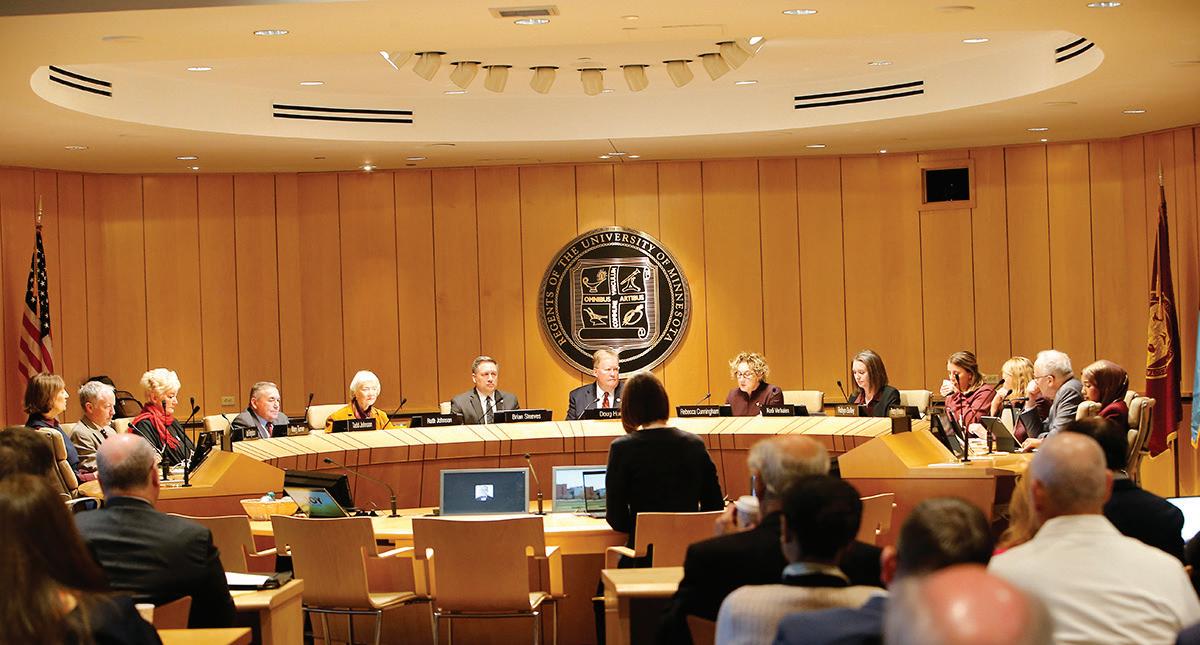
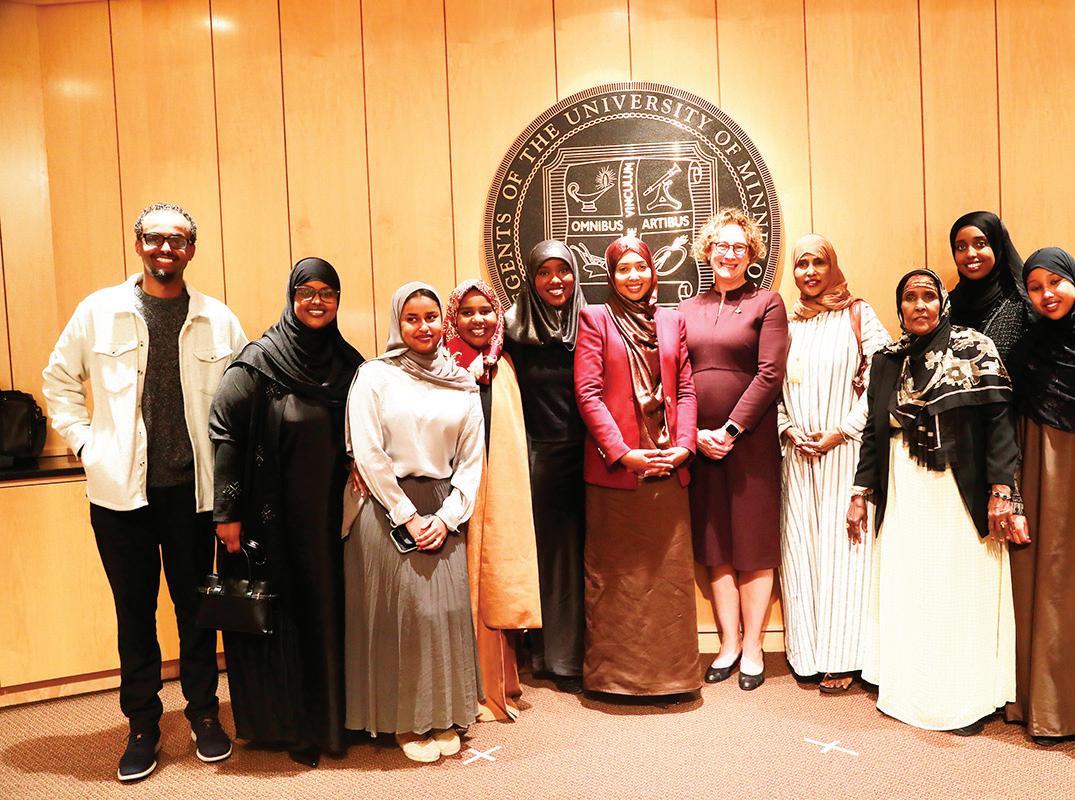
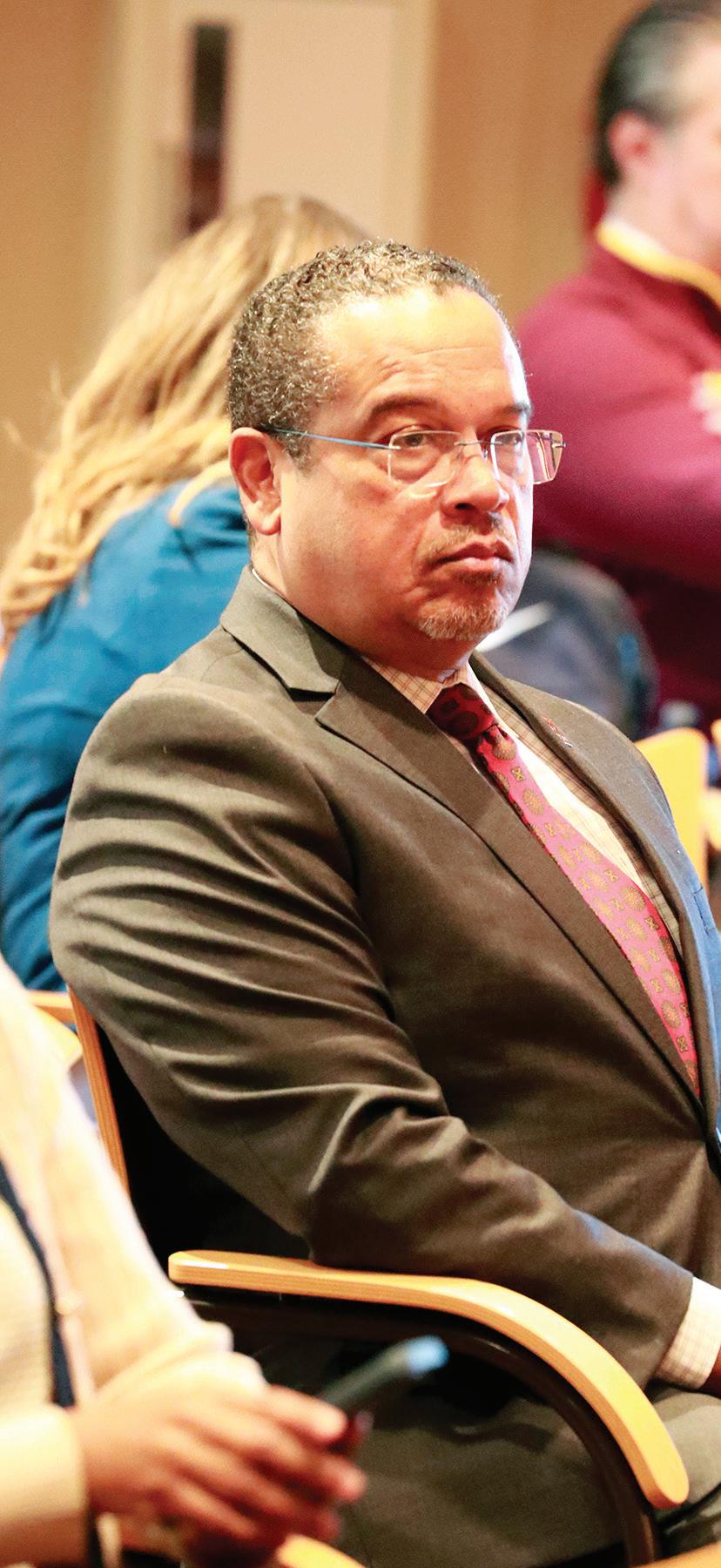
Regent
Cont’d from Pg. 7
nonprofits to secure resources and expand community programming for the neighborhood. The group was responsible for helping to establish new community centered local businesses such as the Sisterhood Boutique, a thrift store that hires and empowers young girls in the community. They also collaborated with the Minneapolis Park and Recreation board to build a new gymnasium and a soccer field.
Mohamed is a two-time alumna of the University of Minnesota. She holds a bachelor’s degree in environmental science, policy and management and another in urban studies. After her undergraduate studies, she went on to earn a master’s degree in urban and regional planning from the university’s Humphrey School of Public Affairs.
Mohamed has had a substantial career in public service which includes serving as Director of Strategic Partnerships at the Center for Economic Inclusion and as senior project manager for the city of St. Paul’s Department of Planning and
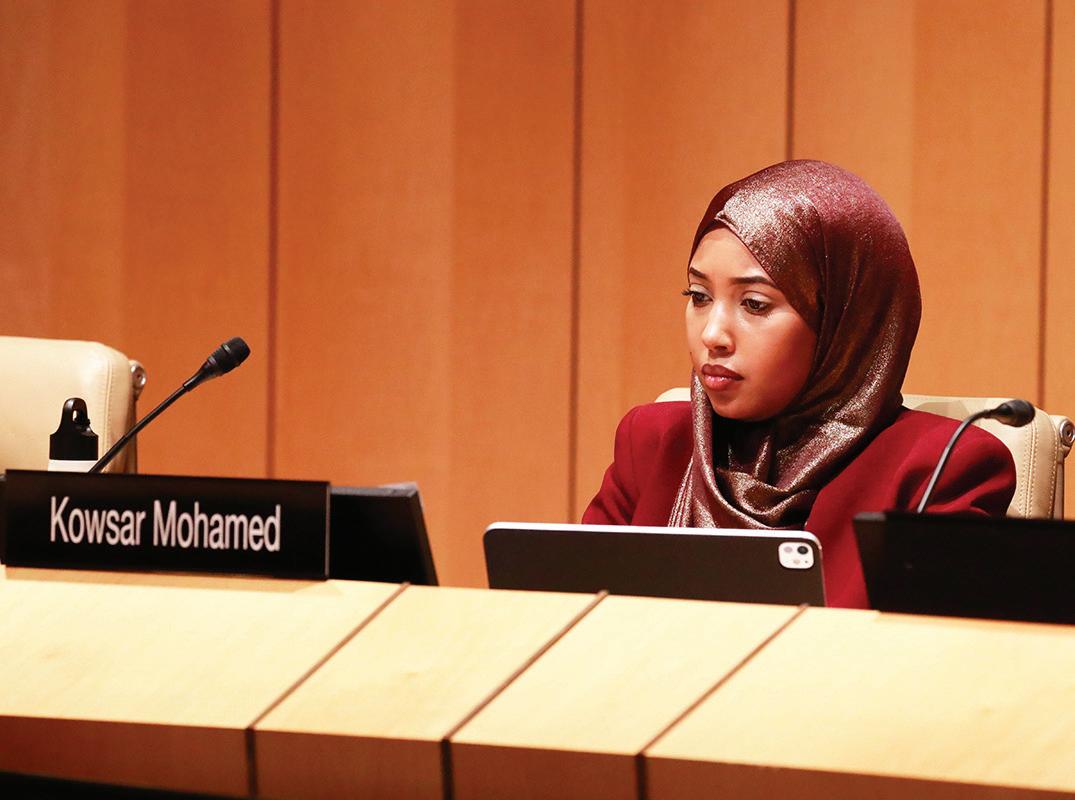
Economic Development. She was also an adjunct professor at the university, teaching courses in urban studies, and served on the Regent Candidate Advisory Council from 2020 to 2024. She is currently pursuing a doctorate in natural resources science and management, with a focus on equity, sustainability, and community development.
Mohamed said that her immigrant background informs her approach to leadership.
“When you come from an immigrant family, you grow up understanding how systems can both empower and exclude people,” she said. “That perspective is something I carry with me in every space I enter.”
The University of Minnesota Board of Regents governs the state’s land grant institution, overseeing its budget, policy direction, and strategic planning. As a student-atlarge regent, Mohamed represents the interests of students across the university’s five campuses, including graduate and professional students. She is a full member of the board.
“I see this role as a bridge,” she said. “It’s about ensuring
that the student experience, in all its diversity, is reflected in the decisions made at the highest level of the university.”
Her appointment comes at a time when higher education is facing critical issues around affordability, student well-being, and equity. Mohamed said she intends to center those concerns in her work on the board.
Mohamed’s priorities include increasing student engagement in governance, advancing equitable policies, and strengthening ties between the University and surrounding communities, she said. She also hoped to amplify the voices of first-generation and immigrant students.
“I want students to know they matter, their voice matters,” she said. “Policy should not be something that happens to us. It should be something we help shape.”
What to know as Nigeria rejects US military threat over alleged Christian killings
By Chinedu Asadu Associated Press
ABUJA, Nigeria (AP) — The U.S. cannot unilaterally carry out any military operation in Nigeria over its claims of Christian persecution in the West African country, a Nigerian presidential spokesman told The Associated Press Sunday.
Such military threat from Donald Trump is based on misleading reports and appears to be part of “Trump’s style of going forceful in order to force a sit-down and have a conversation,” according to Daniel Bwala, a spokesman for Nigerian President Bola Tinubu.
Bwala was responding to Trump’s comment on Saturday that he has ordered the Pentagon to begin planning for potential military action in Nigeria, Africa’s most populous country, over alleged Christian persecution in the country.
Here are five things to know about the issue:
Trump’s ‘guns blazing’ threat
Trump on Saturday doubled down on his allegations that the government is failing to rein in the persecution of Christians in the West African country, whose population of 220 million is split almost evenly between Christians and Muslims.
“If the Nigerian Government continues to allow the killing of Christians, the U.S.A. will immediately stop all aid and assistance to Nigeria, and may very well go into that now disgraced country, ‘guns-a-blazing,’ to completely wipe out the Islamic Terrorists who are committing these horrible atrocities,” Trump posted on social media.
Trump’s threat came after he designated Nigeria as a country of particular concern, a formal U.S. declaration of countries it says are failing to act over religious freedom violations.
The threat and designation came after U.S. Sen. Ted Cruz, a Republican member of the Senate Foreign Relations Committee, and some American celebrities alleged that Christians are being persecuted in Nigeria, without evidence. Some went as far as alleging a “Christian genocide.”
The Associated Press found that both
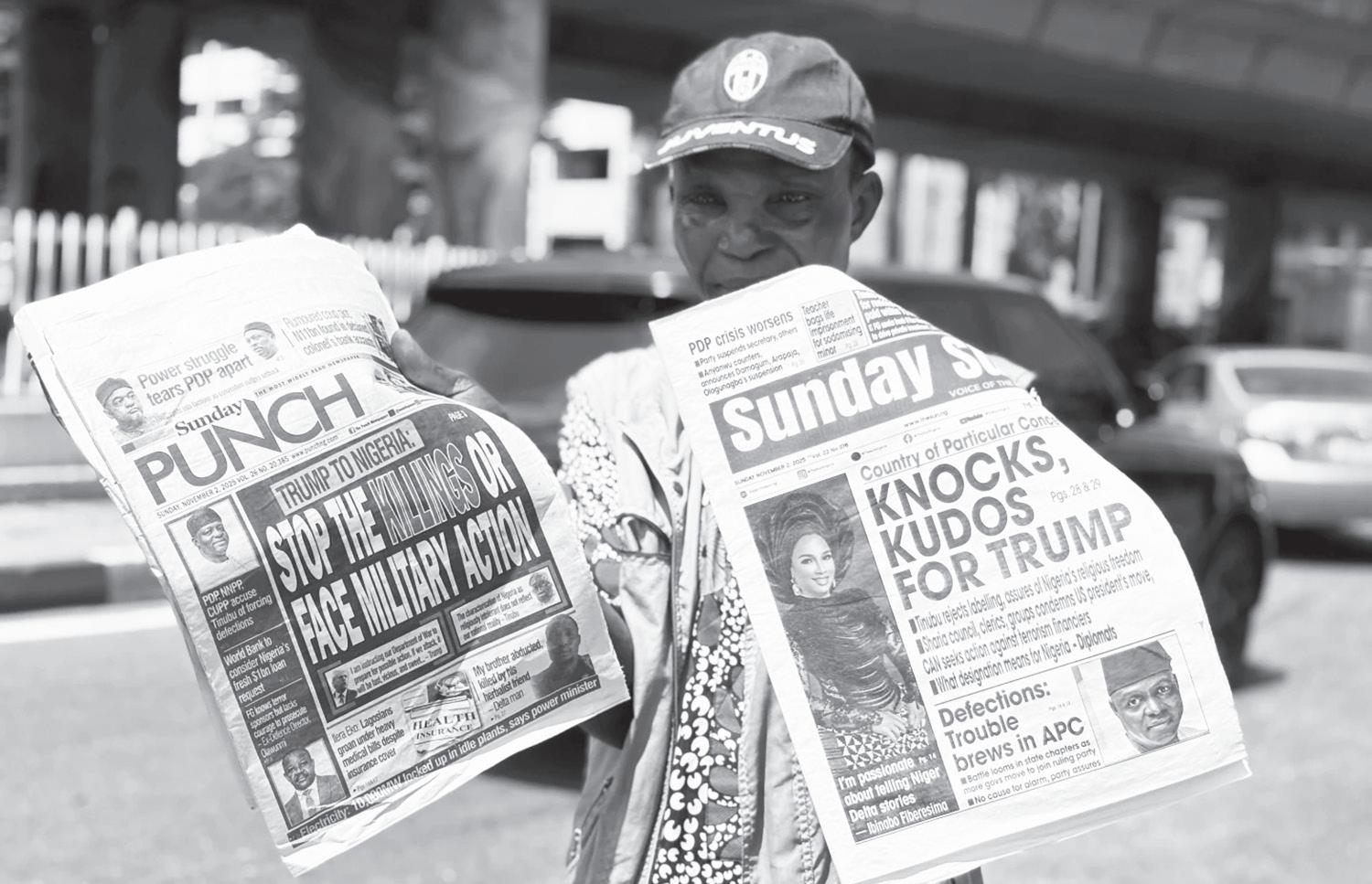
Christians and Muslims are killed in Nigeria’s security crises, and that victims are often determined by their locations and not due to their religion.
Nigeria denies Christians are persecuted
Cruz and Trump relied on old reports from more than a decade ago when Nigeria’s home-grown Boko Haram Islamic group launched an insurgency to enforce their brutal interpretation of Shariah law, said Bwala.
“When it comes to matters of military operation in Nigeria, this is a matter that two leaders have to agree on. It is not something unilaterally you can do especially since that country is a sovereign state and that country is not aiding and abating that (crime),” he said.
Tinubu has also rejected the designation and promised to work with the U.S. government and foreign partners ”to deepen cooperation on protection of communities of all faiths.”
Joseph Hayab, a former chairman of the Christian Association of Nigeria in
Kaduna state, also dismissed claims of Christians persecution being carried out.
Hayab, a pastor in a conflict hot spot, however, said the government needs to do more to secure lives in conflict-battered villages.
Christians and Muslims face violence
Nigeria has for many years struggled with deadly security crises, and the violence have affected both Christians and Muslims, each group making up almost half of the country’s population.
The violence, which is mainly in northern Nigeria, is often perpetuated by Boko Haram insurgents and by armed gangs that authorities have said include mostly former herders who took up arms against farming communities after persistent clashes between herders and farmers.
“The crisis is far more complex than a simple religious framing suggests. The geography of violence largely determines who becomes the victim,” said Taiwo Hassan Adebayo, a researcher at the Institute of Security Studies.
Nigeria’s military has carried out air strikes and special operations targeting the hideouts of the armed gangs. Tinubu also recently replaced the country’s security chiefs as he seeks to bolster their operations.
‘Massive state failure’
While some analysts have dismissed the claims of Christians being targeted in Nigeria, they said they government has failed to act decisively against armed groups.
“In too many cases, the perpetrators have gotten away with it, and the impunity is deeply indicative of massive state failure,” said Cheta Nwanze, a partner at the Lagos-based SBM Intelligence research firm.
Nigerian must step up action against insecurity to prevent the opportunity for external interference, said Taiwo Hassan.
“The criticism and pressure from Washington did not happen in a vacuum. It’s a result of many years of failure.”

Art & Entertainment
Alune Wade and international band to take the stage at the Cedar on Nov. 19
By Susan Budig Mshale
Senegal never left me,” Alune Wade said to Mshale in a recent interview. Born in Dakar, capital of Senegal, now living in Paris, traveling around the globe touring with bass guitar in one hand and a microphone in the other, this versatile musician’s heart still beats for his beloved Africa.
He switches with ease from French to English to Wolof. Despite his mastery of a multi-cultural life, “I’m still in Senegal even if I am in Paris,” he insisted. “My soul, my body, everything, is still in Senegal. I never left.”
Nonetheless, he’ll kick off his North American tour on November 19th when he and his band take the stage at The Cedar Cultural Center. It’s their first time at The Cedar, but nine years ago, Wade played with with the López-Nussa brothers at the Dakota.
This year his show will highlight his latest album New African Orléans.
“On combining Senegalese music with New Orleans Jazz,” Wade said, “I think it was very natural. When I was a child in Senegal, we used to listen to a bunch of different music from all over the world, classical music because my father was a classical musician in the Senegal Army – We’d listen to a bit of Mozart, John Sebastian Bach at home—but also my uncles were musicians. My uncle was playing and listening to
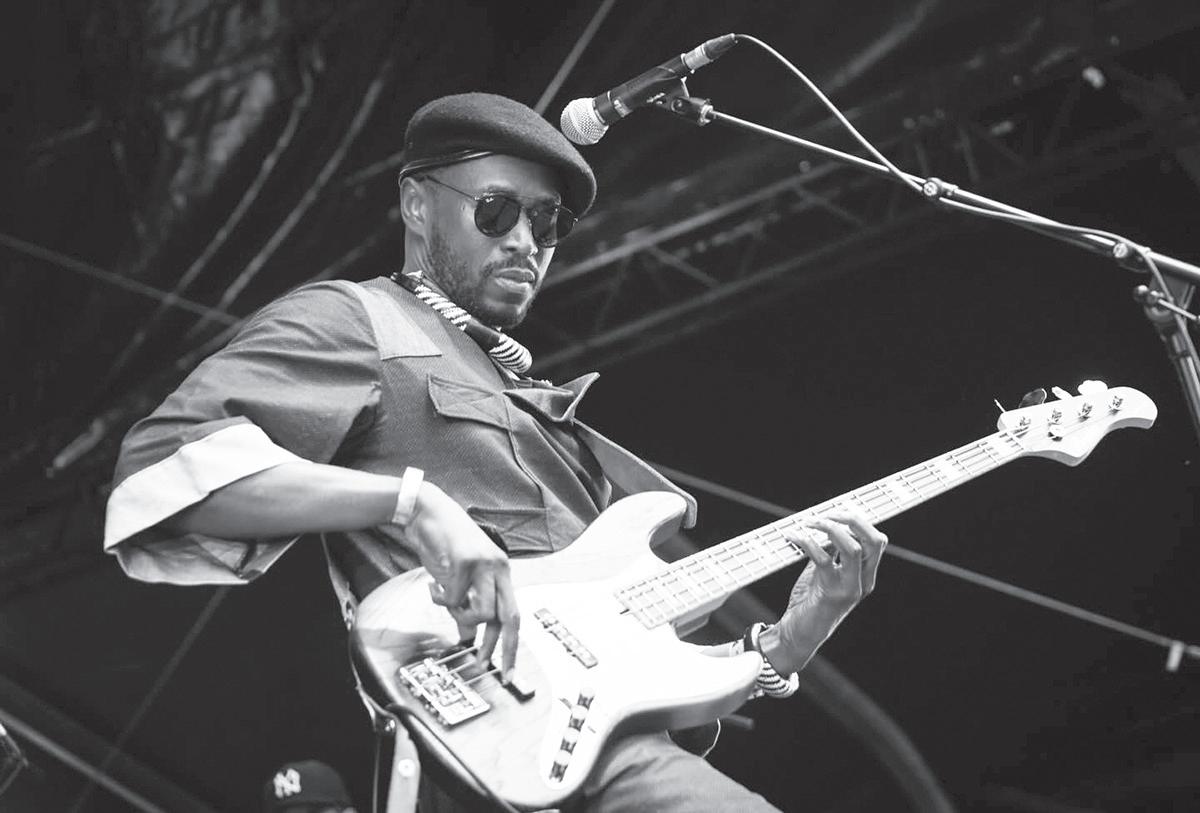
reggae and jazz and scat music. My sisters listened to pop music from Europe and the United States
Wade announced on InstaGram that his latest album was officially up for consideration for Best Global Music Album. Recorded in Paris, Dakar, Lagos and New Orleans, it covers as much musical ground as it does geographical ground.
Wade said echoing his InstaGram page, “This project
is more than just music — it’s a cultural bridge between Africa and New Orleans. A celebration of our roots, our rhythms, and our resistance. It tells stories of migration, resilience, and rebirth — through sound.”
Over our Sunday morning Zoom connection, Wade said, “You know, my music is not just Senegalese, but east Dakar” – the westernmost point of mainland Africa – “because a lot of things happen in Dakar, music from Congo, from Mali, from France, this is
the music of Dakar. That’s why I say, the choice [New African Orleans] was very natural.”
Some of the songs we might hear at The Cedar in November include Gris-Gris Gumbo Ya Ya, Boogie and Juju, and a reimagined Watermelon Man, pull from Wade’s roots and combine with his early years as a professional musician.
When he was 18 years old, he said he was lucky, but he already had the chops to be selected to “play with one of the best African artists at that time in the 1990s, Ismaël Lô. We did a lot, all these magnificent musicians going all over the world. That was my school. That made me what am today.”
Since that time, he’s played with many renown musicians from all over the world, becoming one himself.
“That’s why I say we absorb a lot of culture from other people. That’s why we’re more eclectic, more rich for the things we learn from the other people,” Wade said, describing how his musical style and sound developed.
In the end, though, Alune Wade’s performance November 19th will be not only unforgettable, but decisively unique.
“The base of my music,” ensures Wade, “is still African.”
Tickets for the Nov. 19 show can be purchased on teh Cedar website: TheCedar.org.
